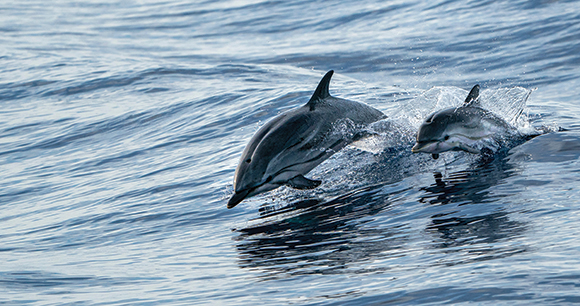Budget Bills Threaten to Shortchange Animal Protection
It was a chaotic first few months for the 119th Congress, as lawmakers attempted to pass spending bills to avert a government shutdown while the Trump administration began moving to cut staff and funds for agencies that administer critical programs. Congress passed several temporary funding measures for the 2025 fiscal year, which began October 1, 2024, before adopting a continuing resolution to fund the government through September 30, 2025. Now Congress is simultaneously trying to pass a budget reconciliation bill while working out appropriations for the 2026 fiscal year. The White House provided limited input in the form of a “skinny” (i.e., broadbrush) budget proposal that, as details would later reveal, envisioned deep cuts that would inflict serious damage to multiple agencies and programs important to animal welfare.

In our ongoing efforts to ensure the continuation of critical programs, AWI has submitted testimony to House and Senate appropriations committees requesting funding for crucial animal welfare activities, including Animal Welfare Act (AWA), Horse Protection Act (HPA), and Endangered Species Act (ESA) enforcement; Protecting Animals With Shelter (PAWS) grants to assist domestic violence survivors with pets; and the work of the National Oceanic and Atmospheric Administration, the Marine Mammal Commission, the John H. Prescott Marine Mammal Rescue Assistance Grant Program, and the Unusual Mortality Event Contingency Fund (used to investigate and respond to marine mammal strandings). We also urged legislators to increase oversight of mink farming, block imports of sport-hunted African elephants and lions, and restrict the use of body-gripping traps in national wildlife refuges.
On agricultural issues, AWI is advocating inclusion of language in FY26 appropriations bills pertaining to Humane Methods of Slaughter Act (HMSA) enforcement, oversight of poultry slaughter, third-party certification of animal-raising claims, and development of more effective and humane methods of depopulation (killing entire flocks or herds—e.g., for disease control) to counter the widespread use of ventilation shutdown plus heat, a method that inflicts tremendous suffering.
To further raise the profile of these requests to appropriators, AWI has generated support through bipartisan sign-on letters. House and Senate letters, led by Reps. Mike Quigley (D-IL) and Christopher Smith (R-NJ) and Sen. Ron Wyden (D-OR), respectively, addressed a variety of animal welfare issues, including AWA, HPA, and HMSA enforcement; PAWS funding; and the use of nonanimal alternatives in research and testing. Rep. Ro Khanna (D-CA) led a letter, signed by 46 representatives, emphasizing the need for improved disaster planning on livestock operations, given the staggering losses caused by extreme weather events and natural disasters. AWI also garnered lawmaker support for letters related to several other issues noted above, including mink farming oversight, hunting trophy imports, trapping in wildlife refuges, ESA implementation, and marine mammal protection.
In the equine arena, 126 representatives and 28 senators joined House and Senate letters—led by Reps. Vern Buchanan (R-FL) and Jan Schakowsky (D-IL) and Sen. Ben Ray Lujan (D-NM), respectively—requesting that the appropriations bills include language permanently blocking the operation of horse slaughter facilities in the United States. Reps. Dina Titus (D-NV) and Steve Cohen (D-TN), joined by 81 representatives, and Sen. Cory Booker (D-NJ), joined by 16 senators, sent letters urging key reforms to the management of federally protected wild horses and burros to ensure their humane treatment. Alarmingly, the president’s FY26 budget proposal omits long-standing prohibitions against the commercial destruction and lethal control of these animals. The budget also proposes to allow large-scale transfer of wild equines to foreign countries, which could lead to horses and burros being slaughtered abroad. We are working with our congressional allies to ensure that appropriations legislation continues to prohibit the killing of wild horses and burros en masse.
Program Terms: All Programs
AWI Quarterly Terms: Feature Article, Government/Legal
Related News
“A Voice for Animals” Contest Winners Devise Practical Strategies to Improve the Lives of Animals
In Program: All ProgramsFrom examining how plastics smother and abrade coral reefs, to spreading awareness about donkeys being sacrificed for the donkey-hide gelatin trade, participants in the 2025...
AWI Mourns Congressman Raúl Grijalva, an Exceptional Champion for Animals
In Program: All ProgramsRep. Raúl Grijalva (D-Ariz.), a staunch advocate for animals and the environment who dedicated half a century to public service, died Thursday at the age...
AWI Scholarship Winners Display Ambition, Ingenuity in Protecting Animals
In Program: All ProgramsThe Animal Welfare Institute (AWI) announced today the 12 winners of a scholarship designed to support high school seniors who are planning to use their...
US Spending Package Includes Multiple Wins for Animals, but Insufficient Funding for Major Welfare and Conservation Priorities
In Program: All ProgramsThe Consolidated Appropriations Act (H.R. 4366) signed into law Saturday includes several important victories for animals, but falls short in a number of key areas,...